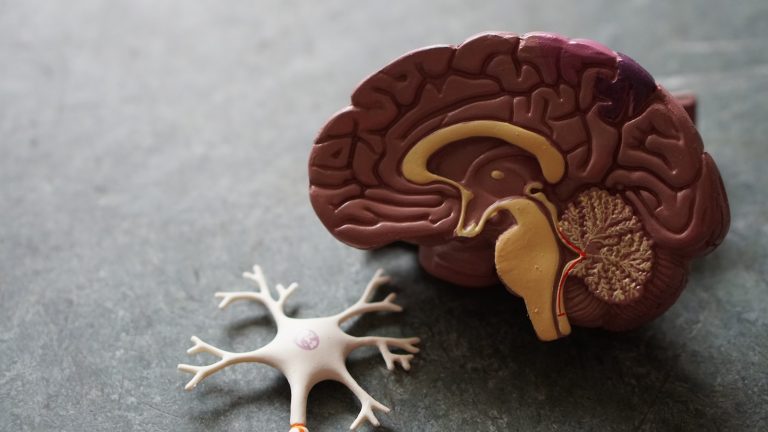Identify the True and False Statements about Hypnosis: Unraveling the Myths
Hypnosis, a subject that has captivated human curiosity for centuries, often conjures up images of mind control and mysterious altered states. But what is the truth about hypnosis? Is it really a tool for manipulation, or does it hold therapeutic potential? In this comprehensive article, we dive deep into the realm of hypnosis, shedding light on the misconceptions that have surrounded it. By the end, you’ll be equipped with the knowledge to discern the facts from the myths. So, let’s embark on this enlightening journey to identify the true and false statements about hypnosis.

Hypnosis: Separating Fact from Fiction
Hypnosis, often portrayed in movies and pop culture as a method to make individuals act against their will, is far from the sinister depictions we often encounter. Let’s dispel the myths and clarify the truths about hypnosis.
Hypnosis Myth 1: Complete Loss of Control
It’s a common belief that under hypnosis, individuals surrender all control over their actions and thoughts. In reality, hypnosis doesn’t entail relinquishing control. Instead, it’s a state of heightened focus and suggestibility. While individuals may follow suggestions more readily, they won’t act against their morals or beliefs.
Hypnosis Myth 2: Only Gullible People Can Be Hypnotized
The notion that only weak-willed or gullible individuals can be hypnotized is a fallacy. Hypnosis is a natural state that we all experience to some extent in our daily lives. Have you ever been so engrossed in a book or a movie that you lost track of time? That’s a form of hypnotic trance.
Hypnosis Myth 3: Hypnosis Is a Truth Serum
While hypnosis can encourage individuals to be more open and expressive, it’s not a guaranteed truth serum. Memories can be distorted, and suggestions from the hypnotist can influence the recall of events. People under hypnosis may unintentionally create false memories.
Hypnosis Myth 4: Hypnosis Is Sleep or Unconsciousness
Contrary to the misconception that hypnosis is akin to sleep or unconsciousness, it’s a state of focused awareness. During hypnosis, the mind is highly engaged, and individuals can access their subconscious thoughts and memories with the guidance of the hypnotist.

Hypnosis Myth 5: You Can Get Stuck in Hypnosis
The fear of getting stuck in a hypnotic trance is unfounded. A person under hypnosis can emerge from the state at will or if there’s a sudden disturbance. Hypnotists often conclude sessions with a methodical “awakening” process to ensure a smooth transition back to normal consciousness.
Hypnosis Myth 6: Hypnosis Can Reveal Suppressed Memories
One of the more intriguing myths is that hypnosis can unearth deeply buried memories. However, research suggests that hypnosis can actually lead to the creation of false memories. Memories retrieved under hypnosis should be approached with caution.
Hypnosis Myth 7: Hypnosis Is a Magical Cure-All
Hypnosis can indeed have therapeutic benefits, but it’s not a magical cure for all ailments. It has shown efficacy in pain management, anxiety reduction, and habit control, among other areas. However, its success varies from person to person, and it’s not a replacement for medical treatment.

Addressing FAQs about Hypnosis
Q: Can anyone be hypnotized? Absolutely! The capacity for hypnosis is present in most individuals. However, the depth of hypnotic trance can differ. Highly analytical individuals might find it more challenging to enter a deep state of hypnosis.
Q: Is hypnotherapy recognized by the medical community? Yes, hypnotherapy is recognized and utilized by many medical professionals. It’s often used as an adjunct to traditional therapies to enhance their effectiveness.
Q: Can you be forced to do something against your will under hypnosis? No, you cannot be forced to do something against your will under hypnosis. Hypnosis enhances suggestibility, but your core values and morals remain intact.
Q: Can hypnosis help with quitting smoking? Yes, hypnosis has been used successfully to aid smoking cessation. It can help individuals modify their behaviors and attitudes towards smoking.
Q: How long does a hypnotic session usually last? A hypnotic session typically lasts about 30 to 60 minutes. The duration can vary based on the goals of the session and the individual’s responsiveness to hypnosis.
Q: Is self-hypnosis effective? Yes, self-hypnosis can be effective for many people. Learning self-hypnosis techniques can empower individuals to manage stress, improve focus, and achieve certain goals.
Conclusion: Unveiling the Reality of Hypnosis
As we conclude our exploration into the world of hypnosis, it’s evident that this phenomenon is both captivating and misunderstood. The myths surrounding hypnosis have led to misconceptions about its nature and capabilities. It’s crucial to approach hypnosis with an open mind, acknowledging its therapeutic potential while dispelling the notion of mind control or supernatural powers.
By identifying the true and false statements about hypnosis, we’ve dismantled the barriers that often cloud our understanding. Remember, hypnosis is a tool that can offer insights into the workings of the human mind, helping us tap into our subconscious resources for personal growth and well-being.
So, the next time you encounter a mesmerizing portrayal of hypnosis in a movie, you’ll have the knowledge to decipher between fiction and the fascinating reality of this intriguing phenomenon.







